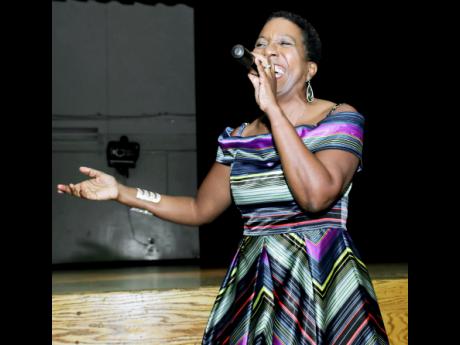EJA advocates for strength in unions
Already, there exist over 10 organizations acting on behalf of local entertainers by either seeking out proper management, the protection of intellectual property rights, preserving the musical heritage among other issues that influence the social being of the industry's personalities.
Some of these include Jamaica Federations of Musicians and Affiliates Union (JFMAU), Jamaica Association of Vintage Artistes and Affiliates (JAVAA), Jamaica Association of Composers, Authors and Publishers (JACAP), and Jamaica Music Society (JAMMS). Since December of last year the Entertainers of Jamaica Association (EJA) was added to that list.
Eligible members
Musicians, performing artistes, sound system operators, dancers, bands, music contractors, radio disc jockeys, television personalities, and all who play a part in the production of entertainment are eligible to become members of the EJA.
Current president of the JFMAU, Karen Smith told The Gleaner, "In order to serve and push forward with support for the concerns of those within the industry, there is definitely space and it certainly makes a lot of sense for another group."
"I believe that there is strength in numbers especially with the various unions. If a single person tries to improve conditions and have innovations widely adopted in the industry then a group will have a bigger voice; the whole idea is to advance the entertainment culture and let voices be heard," she continued.
Artistes, musicians and entertainers in general have a lot to benefit from additional standardisation. The 13-member executive committee of EJA includes individuals from three counties with a wide spectrum of competence, academic, professional and musical achievements.
Smith explained each union plays a part by having different objectives especially considering the contribu-tion of the industry to GDP while having a structure that is not largely formalised.
Timely manner
The EJA, according to its president, Kaestner Smith is there to advocate and ensure that all payments are received and made in timely manner but will not be responsible for the collection.
For royalties and copyright entitlements, collaboration with JACAP, JAMMS and other performance rights societies is high on the agenda so that creativity can be reasonably remunerated.
He says, "The association intends to regulate the actual entertainment industry by sensitising and representing members. Seminars, training camps and retreats will be hosted to educate and instill a level of discipline in members."
Membership to the EJA will cost $4,000 for this year but only 14 entertainers are registered thus far, probably due to averse opinion that it is just another association seeking means to make money or are not forthcoming with the results. The EJA plans to transform that idea into positive thinking.
The EJA is now awaiting the large influx of signees to become a member of the International Federation of Musicians (FIM) society that represents musicians worldwide. Both the local and international unions require a benchmark number of about 300 members.
They are also seeking to partner with Jamaica Confederation of Trade Unions, and the main players in the tourism sector to ensure it receives a fair share of the true Jamaican product as the first port of export for music and culture as well as create relationships with the embassies as it relates to work permits and protection for touring entertainers.
Young artistes, producers, vow support for EJA
The widespread response to the formation of the EJA is that, no matter how many organisations come on the scene to represent the music industry there is always room for more and to learn more. Dre Tosh, grandson of reggae legend Peter Tosh told The Gleaner, "The Jamaican entertainment industry needs to get as much support as it can."
The young prodigy was not aware of the association before the conversation, since becoming a part of the industry part of the learning process, he says, "is that it doesn't have much structure to it". Studio engineers are also interested in what the EJA has to offer.
Warrior King, said that if teachers, law enforcement and firefighters can have unions then it can only be a good move for entertainers to have one, and the more the better. He says, "Entertainers need proper represen-tation even with simple business transactions as getting a loan from the bank, many times we find ourselves in difficulties and need someone to mediate."
O'Neil 'Mondezs' Smith, an audio recording and mixing engineer at Tuff Gong Studio explained that studio personnel normally rely on the contract agreements formed with the artistes. "Depending on the intention of this association it can be good especially for engineers like me, but there is a need for more information," he said. Another issue is the access to information on the various organisations representing the entertainment industry profes-sionals and one of the EJA's goals is to raise awareness for all including similar unions to improve the state and secure the future of Jamaica's talent.


